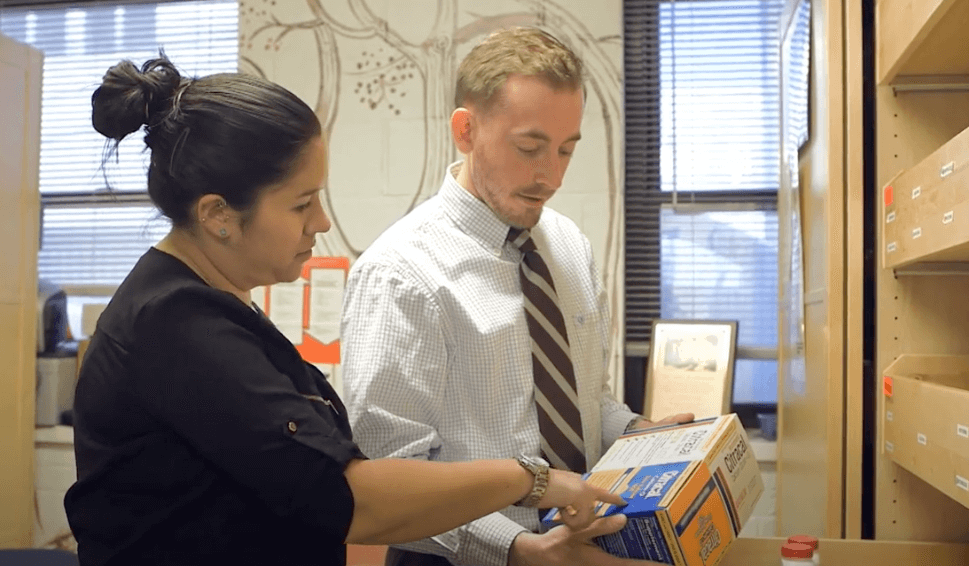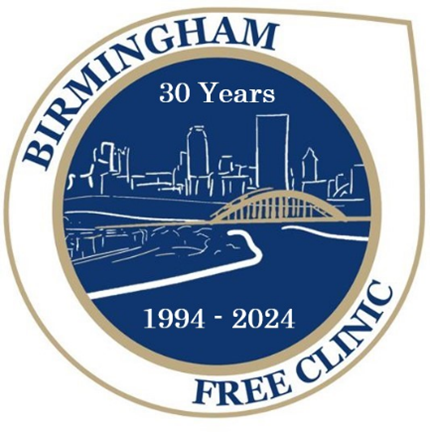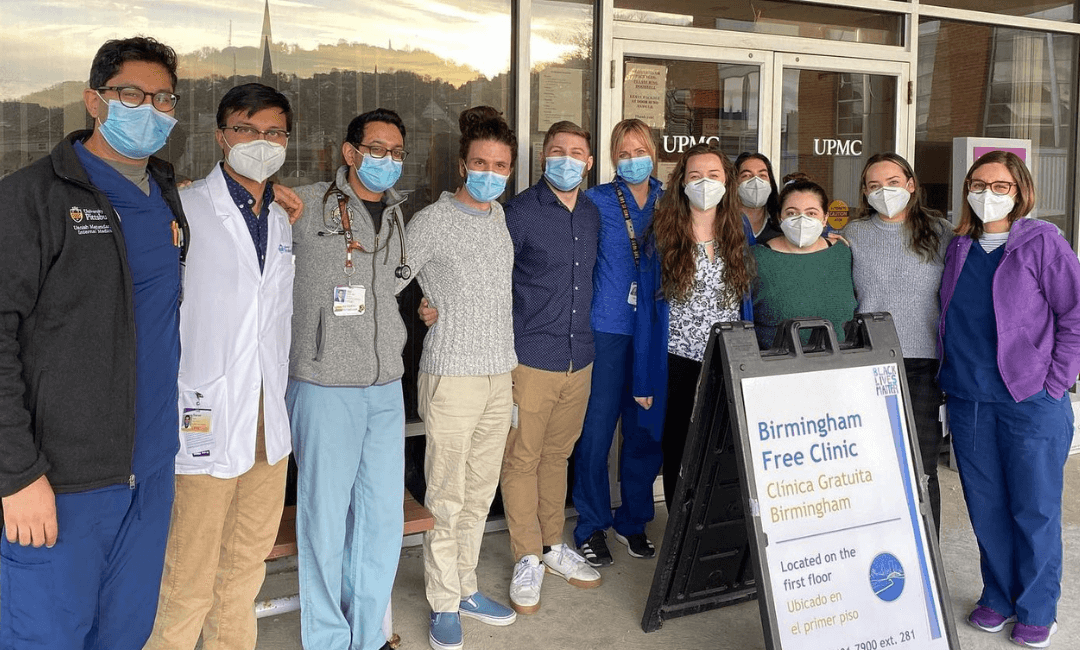Inspired by his experiences and opportunities in the community as a resident, Dr. O’Toole wanted to offer unique opportunities to harness the interest of health professional students, residents, and faculty who wanted to give back to their community and learn firsthand about care for those in need. So, in late 1994, the PHCUP was formed under the administration of the Division of General Internal Medicine (DGIM). Its patient-facing clinic—the Birmingham Free Clinic—was opened soon after as a community clinic in partnership with The Salvation Army homeless drop-in center, who donated all physical clinic space until 2019, when Birmingham had vastly outgrown this location. The partnership with DGIM allowed the PHCUP to institutionalize recruitment of volunteer providers from UPMC and the University of Pittsburgh School of Pharmacy, which then paved the way for the development of robust, experiential learning opportunities for students and residents, which continue today in collaboration with nearly all Schools of the Health Sciences, and many clinical specialty departments within UPMC.
 But as the tertiary care landscapes changed dramatically in the early 2000s in the Pittsburgh region, Birmingham saw a radical change in its patient demographics and volume. Uninsured, housed patients who had utilized many of Pittsburgh’s independent and charity care-focused hospitals were now seeking out free and low-cost care in the community, as many of these independent hospitals closed their doors. This began a shift in the Birmingham patient population from primarily unhoused individuals to anyone in our region who was un- or underinsured, low-income, or struggling with the impact of social determinants of health, including new immigrants, refugees, and asylum seekers. Patients like those at Birmingham embody resilience and hope, struggling to afford care despite working hard to make ends meet. As one patient explained, “It means all of my health. If it wasn’t for Birmingham, I wouldn’t have the medicine I need.”
But as the tertiary care landscapes changed dramatically in the early 2000s in the Pittsburgh region, Birmingham saw a radical change in its patient demographics and volume. Uninsured, housed patients who had utilized many of Pittsburgh’s independent and charity care-focused hospitals were now seeking out free and low-cost care in the community, as many of these independent hospitals closed their doors. This began a shift in the Birmingham patient population from primarily unhoused individuals to anyone in our region who was un- or underinsured, low-income, or struggling with the impact of social determinants of health, including new immigrants, refugees, and asylum seekers. Patients like those at Birmingham embody resilience and hope, struggling to afford care despite working hard to make ends meet. As one patient explained, “It means all of my health. If it wasn’t for Birmingham, I wouldn’t have the medicine I need.”
Birmingham’s medical director, Dr. Jennifer Corbelli, has witnessed the impact of the Birmingham Free Clinic firsthand. She recounts how a new 43-year-old patient came to Birmingham with unintentional weight loss and jaundice. “He had a very low-paying job that did not offer insurance, and although his income was minimal, it prevented him from applying to Medicaid. His bloodwork raised concerns for biliary obstruction. The clinic was able to perform a CT of his abdomen, which showed pancreatic cancer.” Between the clinic and outstanding community health workers, the patient was able to obtain Emergency Medical Assistance, including a biopsy, surgery and chemotherapy. Because of this early intervention by providers at the Birmingham Free Clinic, his cancer was found when it was still operable, and he received life-saving treatment and fully recovered. “Without Birmingham, this patient would have surely died of his cancer, likely after repeated hospital admissions and accruing medical debt that would have been impossible to pay. The patient, who still comes to the clinic for his chronic medical conditions, continues to live an active healthy life.”
Birmingham’s approach to medicine ensures that patients receive comprehensive care, from primary and preventive services to medications and social services help, all under one roof. “To me, it is an invaluable tool to the Pittsburgh community because it has helped not only my family, but my friends and so many others,” another patient reflected, emotionally emphasizing the clinic’s impact.
With a very small, but passionate, staff of a nurse, clinic director, access lead, community health worker, medical assistant, and administrative coordinator—and many volunteer providers and students—the clinic continues to utilize its integrated, patient-centered model, which also focuses on social determinants of health, prevention, health literacy, and culturally appropriate care. The Department of Medicine and the Division of General Internal Medicine also provide invaluable support to the PHCUP and Birmingham with exceptional medical director leadership in Drs. Jen Corbelli, Birmingham’s Medical Director; Thuy Bui, one of Birmingham’s previous medical directors and current director of the DGIM Global Health Residents, who have their continuity clinic at Birmingham; and Raquel Buranosky, who was so impacted by her work in the Birmingham Free Clinic as a resident that she was inspired to establish the PHCUP’s second clinic in 1996, partnered with the Women’s Center and Shelter of Pittsburgh, to address the unique health needs of women recovering from intimate partner violence. The PHCUP also partners with faculty leadership from the Grace Lamsam Pharmaceutical Program of the University of Pittsburgh School of Pharmacy, who provide dispensary oversight, pharmacy and clinical training preceptorship for medicine and pharmacy residents, as well as pharmacy students who come through the Birmingham and Women’s Clinic for curricular rotations.
But perhaps the heart and soul of the Birmingham Free Clinic is Mary Herbert, the clinic director. “Other than the Birmingham founder Dr. Tom O’Toole, there is no one who has been nearly as fundamental to the clinic’s success than Mary Herbert,” says Dr. Corbelli. “Starting over two decades ago as an AmeriCorps member, Mary has been the heart, the grit, the backbone and the spirit of Birmingham. She has led the clinic through numerous location changes—no small feat for a clinic which serves the most vulnerable patients in our region—along with myriad changes in the US healthcare system which dramatically impact the number and needs of patients at Birmingham, the COVID pandemic, and countless other hurdles. Her dedication to vulnerable individuals is unmatched, as are her brilliance and creativity in problem-solving, and her vision to continually expand Birmingham’s impact in the community. The amount of good that Mary has done, day in and day out, at Birmingham over many years is truly immeasurable.”
This year the Birmingham Free Clinic is celebrating its 30th Anniversary in service to the community. Over the years, PHCUP, its Birmingham and Women’s Center Clinics, and medical directors, have received numerous awards for their outstanding service. These include one of the first national Learn and Serve Awards and funding, establishing the program as one of the first Pittsburgh Health Corps/AmeriCorps host sites in our region; HRSA’s Patient Safety and Pharmacy Collaborative Health Outcome Management and Clinic Pharmacy Services Improvement Awards; The Allegheny County Medical Society’s Benjamin Rush Award for Addressing Community Health Needs; A Partnerships of Distinction Award through the University of Pittsburgh School of Pharmacy’s Community Engaged Scholarship Forum, and The Shirley and Ted Humanitarian Award Celebrating Survivors, presented to Dr. Buranosky from the Women’s Center and Shelter of Greater Pittsburgh. Most recently, the Birmingham Free Clinic earned a 2024 Gold Rating from the National Association of Free and Charitable Clinics (NAFCC) Quality Standards Program, a testament to its high standards of care. The PHCUP and its Birmingham Clinic is a current member of the NAFCC and the Pennsylvania Charitable Healthcare Coalition, and one of the longest-operating free clinics in the state.
But most importantly, in their 30 years of operating, Birmingham has transformed countless lives. One grateful patient said, “To me, it means my second home, because I have been diabetic for 25 years. I’ve been here for 5 years, and honestly, I really like it.” Another emphasized, “They need more Birmingham Clinics like this in the city of Pittsburgh.” The PHCUP and its clinics remain a leader and model in quality, patient-centric care to vulnerable individuals, as well as continuing to be a sought-after Service-Learning opportunity for students and residents from across the Pittsburgh region.

The Birmingham Free Clinic relies on the generosity of donors to continue their mission of providing essential services to thousands every year. Click the button below to help support its mission.

